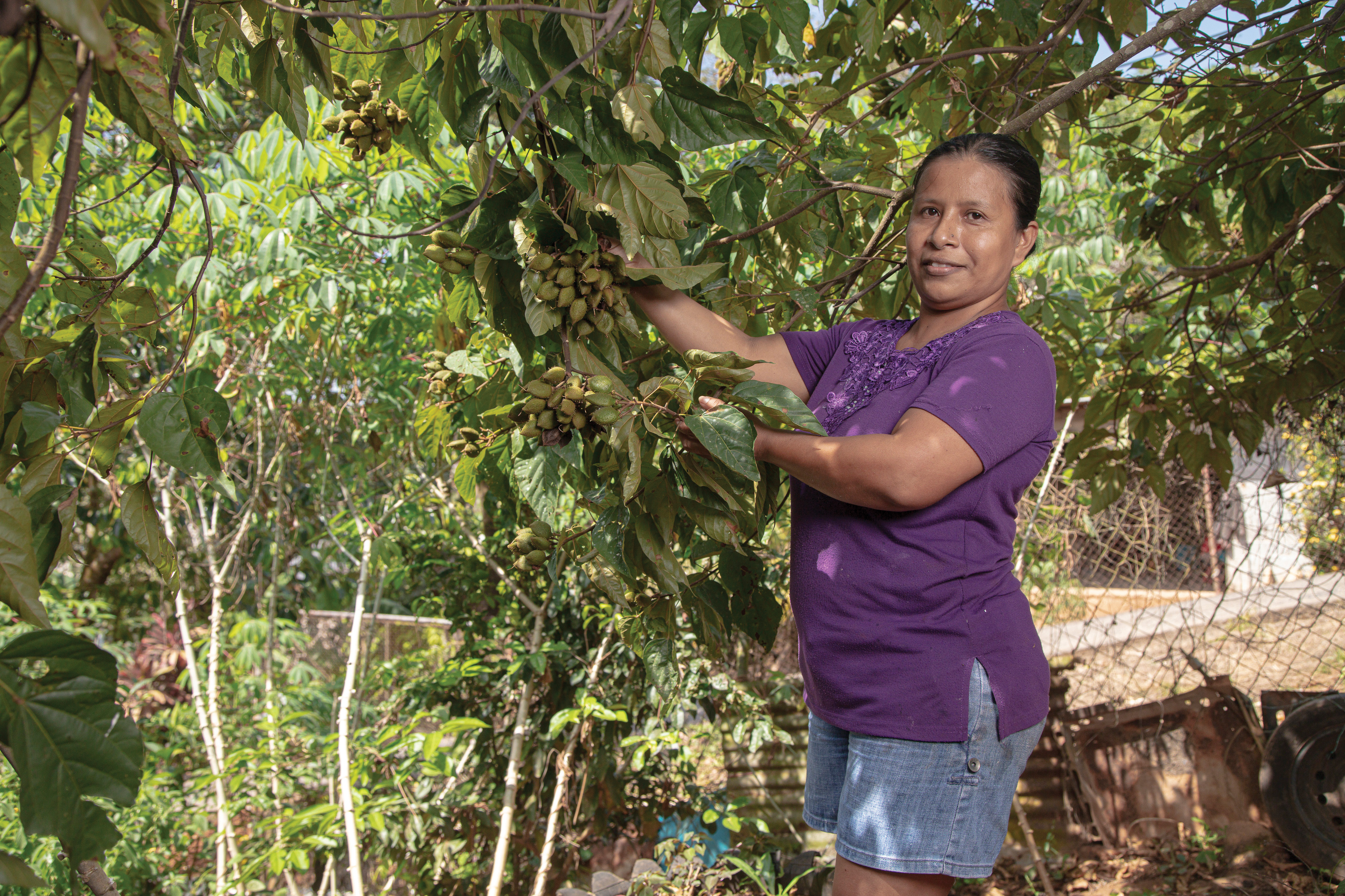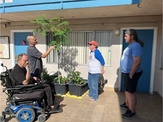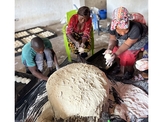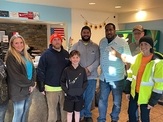One Great Hour of Sharing
Sowing seeds of hope
LOUISVILLE – Paola Tognarelli’s [Tog-na-rē-le] connection to Mother Earth is sacred.
Just like the bond she now shares with the other significant women in her life.
When the pandemic was at its loneliest, Tognarelli blossomed through new, life-giving friendships nurtured around community gardens and in WhatsApp-based support groups sponsored by Women’s Meeting Space, a nonprofit organization based in Panama City, Panama.
“In quarantine, it was great to meet this group of women who, despite the situation, took time together to share their experiences and give each other feedback,” said Tognarelli.
Women's Meeting Space is a non-governmental organization that advocates for the rights of Panama’s women, both Indigenous and from its poorest communities. It helps the women, primarily heads of household who are unemployed, and their families grow food at home to help them overcome the challenges made worse by the pandemic, including high unemployment.
“Personally, planting helped me a lot with my daughter who has autism,” she said. “Planting was, for both of us, a therapy; and then my husband and my other daughter also joined us. This united us more as a family.”
Women’s Meeting Space — along with the Chilibre Women’s Training Centers and the Gonzalillo Community Organization, also in Panama City — receives funding through the Presbyterian Committee on the Self-Development of People (SDOP), which is in turn supported by Presbyterians’ generous gifts to One Great Hour of Sharing.
Founded in 1949, the Offering’s purpose of helping neighbors in need around the world remains constant, giving the PC(USA) a tangible way to share God’s love. One Great Hour of Sharing benefits the ministries of the Presbyterian Hunger Program, Self-Development of People and Presbyterian Disaster Assistance. Although the Offering may be taken anytime, most congregations receive it on Palm Sunday or Easter Sunday.
“I’m not surprised that when we first started working in Panama, we were finding women’s groups,” said Teresa Bidart, bilingual mission specialist for SDOP. “We started in the Dominican Republic in 2007, Belize in 2010, and now Panama in 2018. Everywhere we go, most of the organizations we reach out to are women’s organizations, which doesn’t surprise me because in all these poorer countries, children and families mostly depend on the women for everything they need to live.”
This project — designed to foster knowledge of urban production and boost the capacity of the community to overcome crises — also includes starting an experimental nursery to produce seedlings and installing a community stand. Its goal is not only to feed the growers’ families but to sell surplus food to cover the basic needs of workers.
For Tognarelli, the gardening project not only contributed to her family’s livelihood but it also “sparked creativity” in her and helped her reconnect with the strong women in her family.
“Not only did women work in the sowing, but the garden also became a family space,” said Ileana Lopez, coordinator of the project. “It seemed to improve the mental health of many participants impacted by the COVID-19 virus.”
As Tognarelli began to teach workshops on sowing through improvisational theater, she found the clouds of Covid lifting.
“My mind forgot how terrible the pandemic was, and I appreciated how important it is to be in contact with the earth,” she said. “Also, in this process, it was beautiful because I remembered my grandmother, who always told me about the benefits of medicinal herbs, which she planted and shared with her neighbors. That is what I did; planted and then we shared.”
As for Bidart, she further appreciates that the mission of these three cooperating organizations is congruent with the Presbyterian Mission Agency’s Matthew 25 invitation, which, like Women’s Meeting Space, is similarly dedicated to dismantling structural racism and eradicating systemic poverty.
“SDOP is about entering into partnerships with low-income communities and supporting them to eradicate poverty and change the structures that perpetuate poverty, oppression and injustice. This project developed by three grass roots organizations in Panama, demonstrated that these women’s organizations are fighting with the structures that keep them in poverty. They had a concrete plan to alleviate their poor living conditions by creating home gardens and a community nursery. These activities allowed them to provide for their families and participate in their family economy. That’s exactly what one of the focus areas of Matthew 25 is about, eradicating poverty.”
Bidart also highlighted the importance of the ongoing and frequent communication between SDOP and the three organizations in this project, citing that “it wasn’t just about the money, it was that they knew that somebody was thinking of them and supporting them in this period of crisis.”
As women everywhere struggle to put food on their family’s tables, Lopez and the many women whose lives are being transformed by this project are grateful that the people across the PC(USA) continue to think about them.
“I thank all the women, the managers [of Women's Meeting Space] and the Presbyterian Church for giving us this support that went beyond what I thought,” Tognarelli said. “I’m always very grateful to all of you.”
One Great Hour of Sharing benefits the ministries of the Presbyterian Hunger Program, Self-Development of People and Presbyterian Disaster Assistance. Most congregations receive the offering on Palm Sunday or Easter Sunday.
read more stories:
participate with us
When we all do a little,
it adds up to a lot.
Each gift to One Great Hour of Sharing helps to improve the lives of people in challenging situations. The Offering provides us a way to share God’s love with our neighbors in need. In fact, OGHS is the single, largest way that Presbyterians come together every year to work for a better world. Join us!







